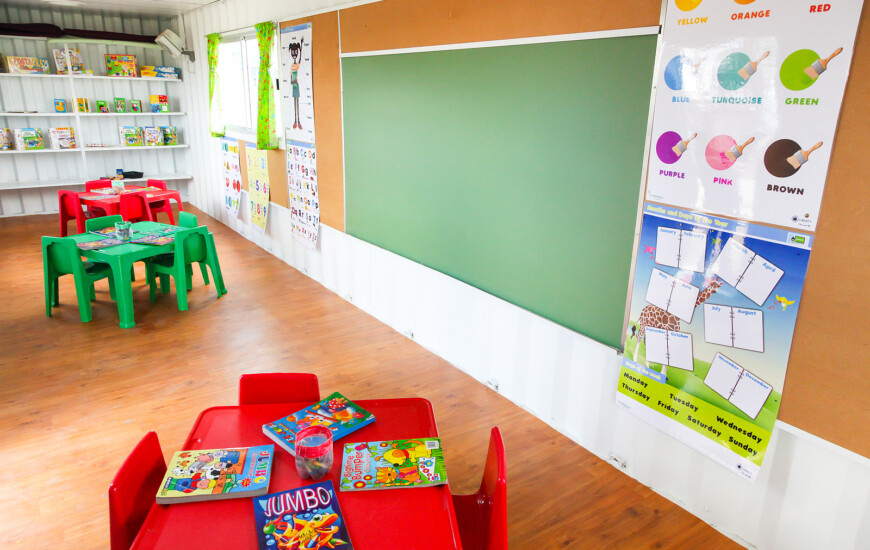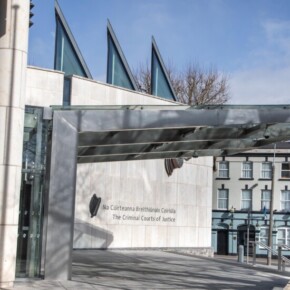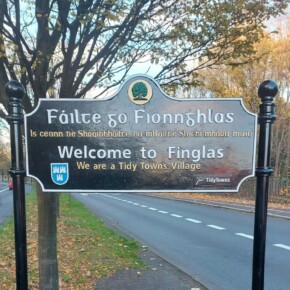Fingal’s childcare crisis revealed
Padraig Conlon 03 Sep 2025
Families across Fingal are being left behind in Ireland’s childcare system, with shocking new figures showing the county has the lowest level of public childcare in the country with thousands of children facing years on waiting lists.
The county also has just a fraction of services run by community providers compared to the rest of Dublin.
The figures have prompted warnings that struggling families in disadvantaged areas are being failed, while long waiting lists across the capital underline the growing crisis in childcare access.

According to local Aontú councillor Ellen Troy (pictured above), the scale of the imbalance in Fingal is stark.
She pointed out that just 5 per cent of childcare facilities in the county are publicly run, compared to 25 per cent nationwide and 33 per cent across Dublin.
By contrast, the overwhelming majority are operated privately, often from buildings supported by public money.
“There are currently 20 childcare providers operating out of premises either owned by, funded or supported by Fingal County Council,” Cllr Troy said.
“Of these, four are public providers and 16 are private businesses.”
The councillor revealed that she was contacted by a public childcare provider who highlighted the issue, noting that Fingal has only 16 public childcare services compared with 274 private services.
That provider, she said, has been blocked from expanding into other community facilities because private operators have already taken up the space.
“This is patently unfair and I am at a loss as to why it is being allowed to happen,” Cllr Troy said.
She warned that the children losing out are those in families who most need affordable access.
“Many public providers operate out of local authority-managed premises in the heart of communities experiencing disadvantage.
“This is not the case in Fingal. In Fingal, thousands of families experience poverty.
“Public childcare is absolutely vital for these families as it is accessible and affordable.”
Drawing on an old saying, she added: “We all know the adage that it takes a village to raise a child, and this is especially true in areas of social disadvantage.”
Cllr Troy argued that public childcare centres offer more than just day-to-day care, with many also running parenting programmes and family outreach supports that private businesses may not provide.
“Public childcare is incredibly effective and a vital community service. It results in better outcomes for children and families and surely that is what we should be striving for.”
She has now called on the executive team at Fingal County Council to account for why private operators are being permitted to use publicly funded community facilities while public providers are being left behind.
“I believe this would be terribly unfair and inequitable at the best of times. But in the current climate, when families are at their wits’ end trying to make ends meet, it is simply unbelievable.”
The local figures are set against a wider backdrop of a system under severe strain, with thousands of families across Dublin unable to find a place for their child.
Recent data in the latest Pobal figures released last week, reveal that more than 13,500 children under the age of three are currently on waiting lists for a crèche place in the capital.
Of these, 1,961 are under one year old, yet just 23 places are available.
There are 5,784 children aged between one and two on waiting lists with just 83 places available, while 5,890 children aged two to three are competing for 328 available places.
The figures underline the severity of the gap between demand and capacity, a crisis many parents are all too familiar with. For some families, names must be added to lists even before a baby is born, with hopes pinned on securing a place by the time the child turns two or three. For thousands, those hopes will go unmet.
Frances Byrne, Director of Policy at Early Childhood Ireland, said the problem cannot be solved without urgent government action.
“No child should miss out because of failures to invest properly in this vital workforce, yet that’s exactly what’s happening to thousands of children in Dublin.
“Without significant investment in Budget 2026, and a renewed focus on staffing, challenges to recruit and retain educators will continue to block efforts to expand access for families.”
Early Childhood Ireland has called for a firm commitment from government to bring pay and conditions for Early Years and School Age Care graduates into line with primary school teachers, who are trained to the same level.
In its Budget 2026 submission, the organisation argued that such a move would help reverse a staff turnover rate of over 35 per cent in Dublin, which is a major barrier to providers being able to expand.
“Waiting lists like these would never be accepted in primary education, yet they remain a daily reality for younger children.
“As a first step to increasing capacity, Early Childhood Ireland is calling on the Government to announce, on Budget Day, a date for bringing Early Years and School Age Care graduates within public sector pay and conditions, in line with teachers,” Byrne said.
She noted that the government’s current focus is on reducing fees for parents, but warned that this approach will only deepen the problem if staffing is not addressed.
“Currently, the government is mainly focused on reducing fees, and although we welcome proposals to increase subsidies for families, this will only create further demand for places.
“Providers in Dublin will not be able to expand their capacity in settings unless they can recruit and retain qualified staff on appropriate terms and conditions.
“Naming a date to bring graduates into pay parity with teachers is a crucial next step.”
The scale of public support for reform is clear. According to Early Childhood Ireland’s 2025 Barometer, 76 per cent of adults back guaranteed access to Early Years and School Age Care.
Yet for many families across Dublin and Fingal, that guarantee is still a distant prospect.
“It’s incredibly tough for parents trying to find a place for their child,” Frances Byrne said.
“At the same time, we hear from many of our 1,073 members in Dublin about how they want to expand, they’re ready to grow, but they struggle to recruit and retain qualified educators.
“We can’t expand access for children unless we improve pay and conditions for those who deliver that care and education.
“You can’t separate the two, and we hope the government sees that.”
The figures and warnings add up to a picture of a system under extreme pressure.
In Fingal, critics say the situation is being worsened by public facilities being handed to private operators, undermining community providers who could deliver affordable services in disadvantaged areas.
Across Dublin, waiting lists stretch into the thousands, with parents forced to plan years ahead to secure a place.
For families across the Northside and beyond, the issue is immediate and deeply personal: finding a safe, affordable place for their children in a system buckling under demand.











